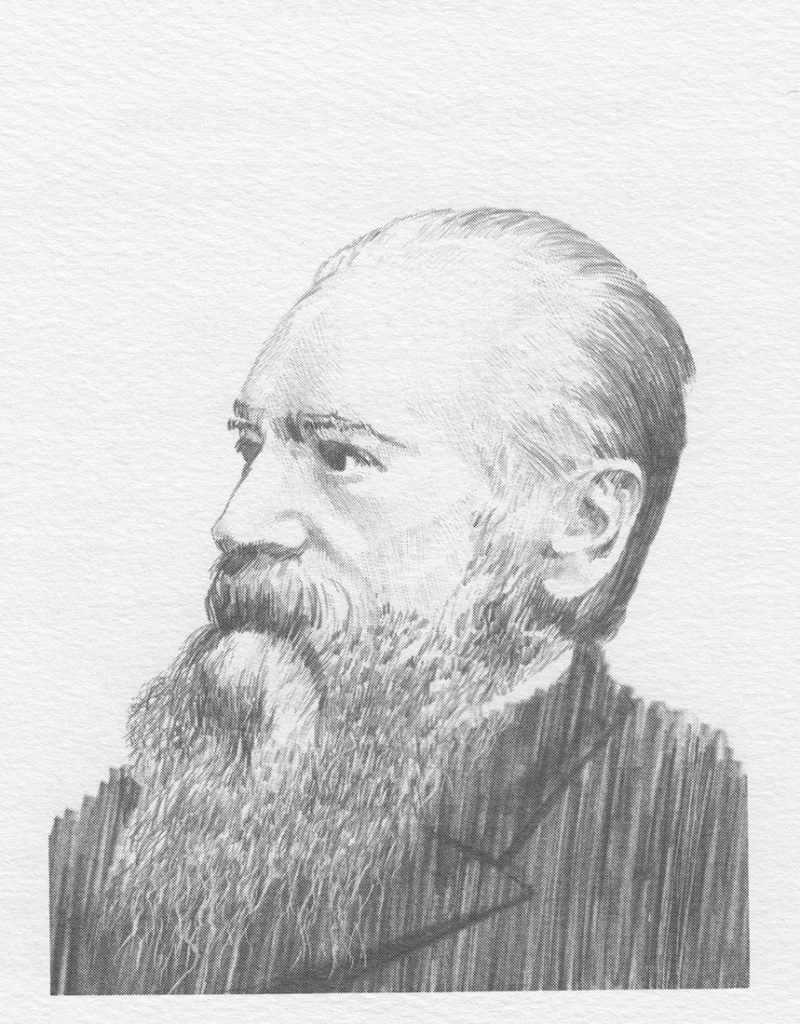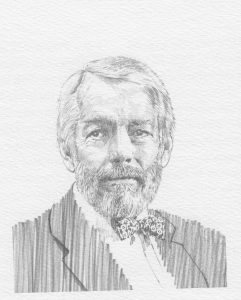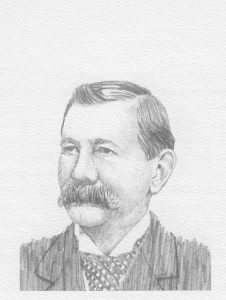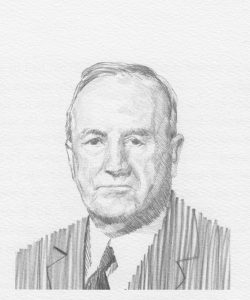The life of the founder of Cullman and of Cullman County, Alabama, has been scantily recorded in history books. But when his accomplishments are measured against the adversity he overcame, he can be ranked among the bravest and greatest of Alabamians.
Johann Gottfried Cullmann, son of Gottfried and Juliana (Schneider) Cullmann, was born July 2, 1823, in Frankweiler, Canton Landau, Rheinpfalz, Bavaria. The exact details of his early life are somewhat sketchy, but it is known that he entered upon a mercantile career after completing his education at the local school. Eventually, he became proprietor of an export business at Neustadt an der Haard where he met and married Josephine Low. They had four children: Theodore, Otto, Maria, and Alice.
The young Bavarian believed in the rights of the common man as evidenced by his participation in the Revolution of 1848, and in the Danish War in 1864. In these fights against the oppressive rule, he expended the resources of two businesses. In 1864, it became obvious that he was no longer welcomed by German authorities because of his revolutionary activities. Thus, at the age of forty-one, he left his family, friends, and homeland to begin a new life. He came to the United States with a burning ambition to establish a German colony where he and his countrymen could be free to live in peace and happiness. Many long, hard years were to pass before he was to realize his dream.
John Cullman (the Americanized version of his name) entered the U.S. through New York. Finding no suitable work, he moved to Philadelphia where he worked as a clerk. He then moved to Cincinnati which had a large German colony. Being ambitious, he studied law at night. After being admitted to the bar, he found a large clientele among the Germans of the city. By 1871, he had amassed enough resources to begin his search for a place to establish a colony.
The extent of his search is unknown. But in 1871, he was in North Alabama where he made the acquaintance of former Governor Patton, who gave him much encouragement.
The beautiful Tennessee Valley must have reminded John Cullman of his native Rhine Valley. Near the end of 1871 or in early 1872, he attempted to buy land for his colony near Florence, Alabama but met with opposition (probably stemming from people’s distrust of “foreigners” during the bitter period after the War Between the States).
This failure did not discourage him. Through Governor Patton, John Cullman learned that the Great North-South (later, L&N) Railway had completed the mainline connecting Nashville with Montgomery and was interested in any scheme of development of a largely unsettled area of North Central Alabama through which the line passed. The governor arranged for John Cullman to meet Lewis Fink, the L&N agent of Decatur. The two men explored every mile of land along the line between Decatur and Montgomery.
For his colony, John Cullman initially purchased around 350,000 acres fifteen miles on each side of the railroad near the highest point along the line between Mobile and Cincinnati. He then returned to Cincinnati to “recruit” German families for the new colony in Alabama. His oldest son Theodore (who had joined him by this time) was a great help in these efforts. Unfortunately, Theodore died of typhoid fever. A grieving John Cullman buried his twenty-five-year-old son in Cincinnati and then once more turned from adversity to work.
The actual settlement of the free German colony of Cullman began in late April of 1873. Five families were present when the first trees were felled. By the next year, there were 123 families.
John Cullman had the town laid off in perfect square blocks with streets wide enough to “drive four teams of horses abreast along their course.” The railroad was bordered on each side by parks and later hidden from view by lowering the tracks several feet below ground level. He also made certain that ground was laid aside for Protestant and Catholic churches. He himself established St. John’s United Church and donated the land on which it is built.
John Cullman does not seem to have rested a moment in his endeavors. He sought to find a successful economic pattern for his colony and to bring in as many immigrants as he could.
He encouraged the establishment of a variety of businesses in the town and in the county – including a land company, newspapers, a wine-producing company, and a savings and loan. (The Cullman Saving!? and Loan, which was the first chartered savings and loan in Alabama, was founded by John Cullman and a group of fellow citizens).
John Cullman made at least three trips to Germany to encourage immigration. It is evident that he would sell land to immigrants and then use the money from the sales to pay for others to come. They were settled in the town and in the area which became the county. Perhaps he brought more immigrants to the U.S. than any other individual.
The town of Cullman was incorporated in 1875 and Cullman County, in 1877 – both by the act of the Alabama State Legislature with which John Cullman seems to have had considerable influence. He was also an influential man in the town, but refused to seek civil office because, according to reports, “that would be too much like his homeland where the privileged often had too much to say and the common man, not enough.”
John Cullman’s hardships and disappointments did not cease with the realization of establishing a free German colony. He was the victim of an attempted assassination by crooks and squatters sometime in 1875. In 1884, his second son, Otto, (who had come to Cullman to join his father) succumbed to typhoid fever. Otto was only twenty-nine. He is buried next to his father in the center of the Cullman City Cemetery.




